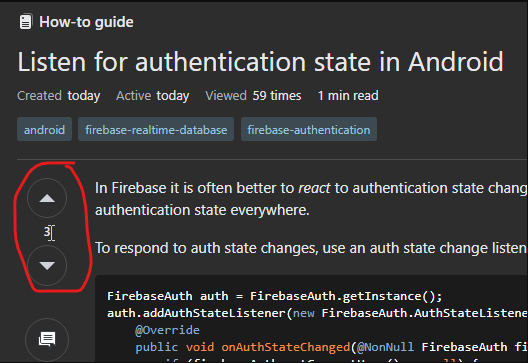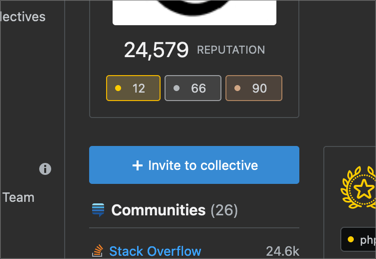Beta release of Collectives on Stack Overflow
Over the past year, our Reach & Relevance team (description of the team in FAQ) has been heads down working on a new initiative that will enhance the experience on Stack Overflow for both our users and organizations (open source organizations and their different projects, companies that build products and services for developers). Today, I’m happy to announce the Beta release of a new product, Collectives™ on Stack Overflow.
First things first: why?
We know that developers at tech organizations have a wealth of knowledge about their technologies and, while some currently participate on SO, we're interested in a way to increase and simplify that participation. An organization’s expertise, when included with the community’s knowledge, can provide a more in-depth understanding of how to use a language, leverage a service, or troubleshoot a technology.
We’ve also learned that organizations who are active on Stack Overflow have a strong appetite to add their specific knowledge. They want to have deeper interactions and provide a better experience to their current and potential users. Currently, they can’t do that with any of our products.
With that in mind, we have the following goals for this initiative:
Allow the communities that have formed around specific technologies to engage with the people that are building and supporting those technologies.
Increase the amount of high-quality content around tags related to a Collectives’ technology on Stack Overflow.
Give technical employees of these organizations the tools to contribute their knowledge effectively to the Stack Overflow community.
Provide organizations with a space on Stack Overflow where they can highlight and share relevant content.
Beta release
We’re launching the Beta version of Collectives™ on Stack Overflow today. It will include features that are based on our findings from research sessions with users, moderators, and organizations. Our Product Research Lead on this initiative, Mithila Fox, posted a more in-depth post on this process. This is just the beginning. We will continue to listen, learn, and make improvements. We're interested in hearing your thoughts, and we have outlined the various ways we plan to gather feedback below (see: how to share feedback).
What is a collective?
Collectives™ on Stack Overflow is a new set of spaces on Stack Overflow where content related to certain technical languages, products, or services can be grouped together. It’s a place for users who regularly interact with this content to collaborate. In turn, the organizations that help build or maintain this technology will share their expertise. Collectives are based on a set of specific tags relating to the technologies that an organization builds, supports, and has an authority over. They aggregate all content for those interested in this technology and give some special handling of content posted in those tags.
Beta features
Below there’s a short description of what’s included in this initial launch. For a visual representation, see Go Collective & Google Cloud Collective.
Collectives page
Each organization that participates in Collectives on Stack Overflow will get its own page, which will act as its “home” on Stack Overflow. Questions and Answers will be posted to Stack Overflow, as usual, and the collective page will aggregate all the relevant content from selected tags. It’s where relevant Articles (more below in the Articles paragraph) can be found. Users can participate in a collective-specific leaderboard and can learn which users are Admins/Recognized Members of a collective.
When you choose to join a collective you’ll find a link to it in the left side navigation. All Collectives can be found here.
User Roles
Collectives on Stack Overflow will add additional user roles to Stack Overflow.
Recognized Member
Recognized members are either employees of an organization or users from within the Stack Overflow community that are knowledgeable about their products and therefore selected to become Recognized Members. These users will have a badge on their user card when they post/edit a question, answer, or article within the collective. They are also able to post Articles and recommend answers.
Admin
The admin of a collective has all the abilities the Recognized Member has, but also has access to the data (see below) from within the collective. They are the ones who manage Recognized Members and are able to invite Stack Overflow users to become Recognized Members within the collective.
Employee
An Admin/Recognized member can have the employee label. This will not affect any of their permissions but would show this on any post they make. This way all Stack Overflow users will be able to see that the user is formally associated with the organization.
Articles
Collectives on Stack Overflow adds the ability to create Articles, longer form content that lives on the collective page. We first introduced this feature within our Teams product last year, and we have seen strong adoption and usage. Articles give Recognized Members the opportunity to provide deeper knowledge and insights through how-to-guides, knowledge articles, or announcements. Initially, Articles can only be posted by Admins and Recognized Members of a collective, but we’re planning to release a feature (in the near term) that would allow any member of a collective to submit an Article for review.
Enhancing the Q&A experience through Recommended Answers
Recognized members and admins of an organization will be able to recommend answers on tags associated with their collective. This effectively adds a “seal of approval” to the most appropriate answer from their point of view. However, it does not impact or override the existing system for voting an answer up or down.
Metrics
In order to help Admins better understand the health of their collective and how they can positively contribute to it, we'll be providing them with metrics & insights on activity on the pages around the tags that are associated with their collective. More info on what data will be available can be found below in the FAQ section.
Feedback and next steps
We have a large backlog of feedback, feature requests, and our own ideas which will go through rounds of research with users and organizations over the coming months. And we’re curious to hear what features you might feel would be beneficial from your perspective.
How to share feedback
We’re excited to see how this product will be used and are eager to hear your feedback on the different features. We’ll be processing the feedback in two ways:
You can use the regular feature request flow.
The user research post describes how you can participate in future user research.
Later this week we’ll post a Townhall AMA Meta post (hosted by the Community Management team) where we’ll try to answer questions.
The feedback that we collect through these sources will be included in our user research process. Feedback from the community has shaped this product so far, and we want to continue that.
Next steps
We’ve learned a lot during our user research sessions and look forward to seeing how this new initiative can benefit the community and our customers. We want to ensure that this project continues to add value, improve the quality of content and allow our users to engage with the people that are building/supporting the technologies they use. Therefore we’ll continue identifying features that are needed from an organization and user perspective so we can build them into the roadmap in the coming months.
Launch customers
We are excited to announce that we’ll be launching with Go & Google Cloud. These two organizations already have a huge presence on Stack Overflow through their tags. They are well-positioned to take advantage of the collective page, recommendations, and articles in order to improve the Stack Overflow experience around their tags and engage with their communities more directly, in a central place. Both of these organizations have proven to be great partners during the process of creating this initiative, being involved in many research sessions, understanding the Stack Overflow and the Collectives project, and providing us with valuable feedback on how to make this a success.
Shoutouts
We’d like to give a huge shout-out to the group of users that have been participating in our research sessions. We’ve learned a lot from these conversations, and we really enjoyed them. Thank you so much, and we look forward to continuing these conversations with you.
FAQ
We know that you will have questions on Collectives on Stack Overflow. We’ve summarized several that we’ve received from community members who have participated in our research sessions, as well as a few questions we anticipate hearing from you.
Why didn’t you ask for feedback on Meta earlier?
Because this initiative involved potential customer organizations, we could not speak publicly about it until we were ready to launch. However, we have been running weekly research sessions with a group of 12 moderators and high-rep Meta users under NDA to gather their feedback and thoughts on different aspects of the project. We've shared a more in-depth post on these research sessions and our findings on Meta.
Why have you been working on this, instead of this or that?
We believe this project can have a positive impact on the user experience on Stack Overflow by providing a dedicated space where people can collaborate more directly around technologies and products. While the research and development of this initiative was largely driven by the Reach and Relevance team, they coordinated closely with the Public Platform and Community teams. The Public Platform and Community teams were key stakeholders on the project to provide insight, guidance, and input.
Wait a second. Articles sound familiar. How is this different from the Documentation project?
Good question... We’ve done quite a bit of research on what went wrong with the Documentation project. At the time, we didn't have the resources to fully support Documentation, but the research done then, and more recently around this project, has consistently validated an appetite for content beyond Q&A on Stack Overflow.
A second concern around Documentation was around the content quality. We feel that initially limiting posting of Articles to a small subset of users and expanding that later on to a bigger group through an approval process should mitigate these problems.
But does this mean that these organizations own the Q&A content?
No, all questions and answers will remain on Stack Overflow. Nothing changes here. Moderation rules, code of conduct, etc. will all remain the same. The license of the content will remain the same as described here.
Does Stack Overflow become a support portal for large organizations?
No. Even though we might see more of our customers' clients coming to Stack Overflow for help, the rules around Q&A on Stack Overflow remain the same, and we'll continue to set appropriate expectations with our customers & users.
How will this affect the workload for moderators and curators?
We don’t want the workload for our moderators to increase significantly due to this project. However, there is no way to know for sure. This is why we are testing the concept with only two Beta Customers. We will be in very close contact with the moderator team to gather their thoughts and make adjustments - if and when necessary. Our community team is closely monitoring this and providing feedback to the project team. We have also provided clear instructions to the organizations about the best ways of engaging on Stack Overflow, making sure that their contributions are meaningful and valuable.
What content is part of Collectives?
We create a collective around a set of specific tags relating to the technologies that an organization builds, supports, and has an authority over.
What type of data will be shared with the organizations in the reporting section?
All the data will be aggregated, therefore we won’t be sharing any PII (personal) information with the organizations and will comply with all data privacy laws (GDPR, CCPA, etc.). The organizations will have access to different types of reports. These will include metrics such as page views & unique users per day/country, the total number of questions/answers in a specific timeframe, and calculated metrics such as the % of questions that got an answer within 24 hours per topic tag.
How does this relate to the rest of the Stack Exchange Network?
Right now we're working with Stack Overflow in mind, and our launch will be focused there. However, if other organizations show an interest outside of SO, we will keep an open mind and consider making it available more widely.
How will recommended answers affect the order or the answers and the rep system?
Initially, it will not affect the order at all. We are looking into one particular use case where answers that have the exact same score are currently randomly sorted. In terms of rep: it will have no effect on the reputation you get from answers. You will continue to earn rep as usual by answering and voting on responses to questions.
What were the criteria for selecting a launch customer?
We applied several criteria:
We wanted to launch with one open-source and one commercial organization, as we feel those are both very relevant to Stack Overflow users. To hit the ground running, we wanted to launch with an organization that already had a good amount of activity on Stack Overflow through their potential tags. Therefore we looked at the number of tags that their technologies have and the total number of pageviews these questions get per month.
We selected the organizations that were eager to actively work with us on the Beta launch and were willing to commit to providing resources to support their Collective and to provide us with feedback on what features would be useful for them.
Will recommendations affect the sorting of answers on question pages?
No, we have no plans to do so in the foreseeable future. We'll revisit this if we learn that recommendations prove to be a consistent signal to identify the most relevant answer.
What’s the benefit for organizations to actually participate?
We’d like to split this into two categories:
Adoption
We know from our research that, when evaluating platforms, engineers look for technologies that have a well-supported, thriving user community. The social proof that comes from these communities helps drive adoption and engagement for the products & services of these organizations.
Engagement
We know that our customers are looking for insights and engagement with their core audience to help support their own product development cycles. We feel that the features included in this Beta release will allow them to make better strategic decisions on growing and driving adoption of their products.
What is the Reach & Relevance Team?
The Reach & Relevance Team focuses on building and operating product features that address real user needs while enabling relevant technology providers and employers to build awareness and engage with interested users on our products such as Collectives on Stack Overflow, Advertising, and Employer Branding.
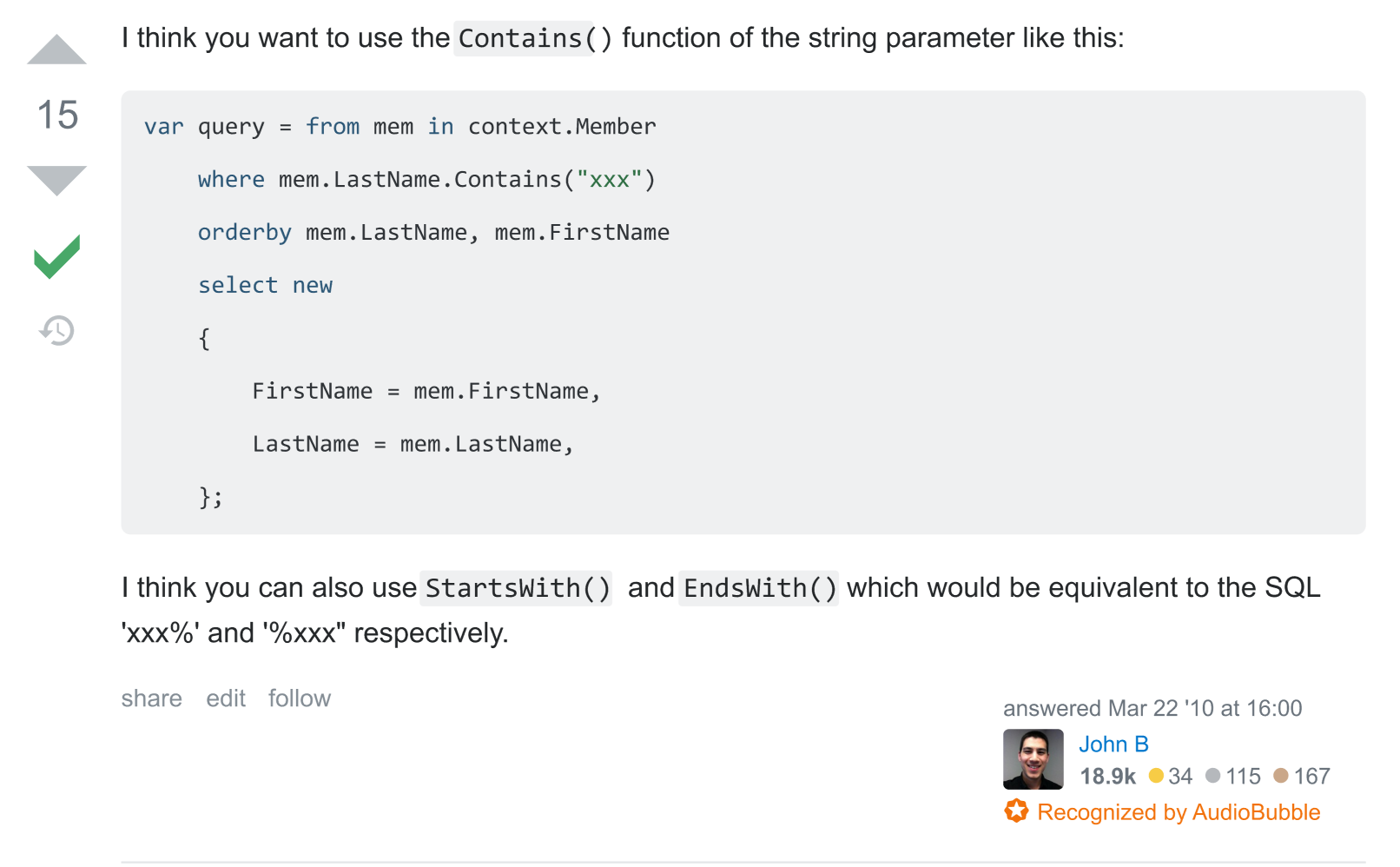
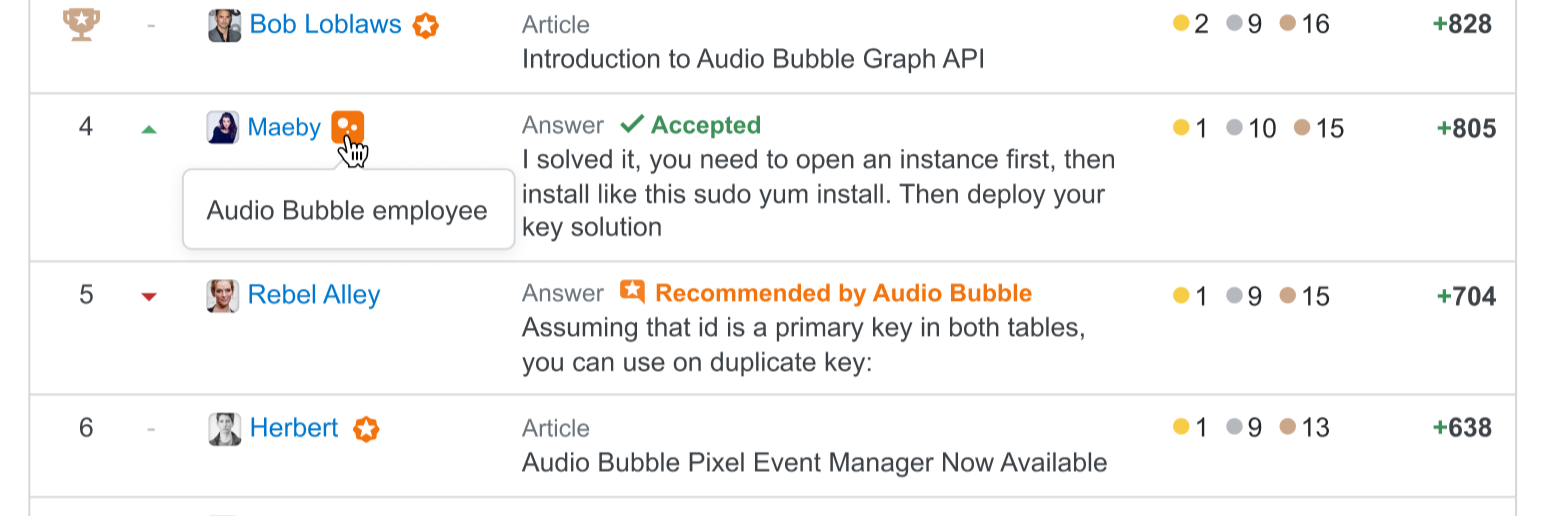
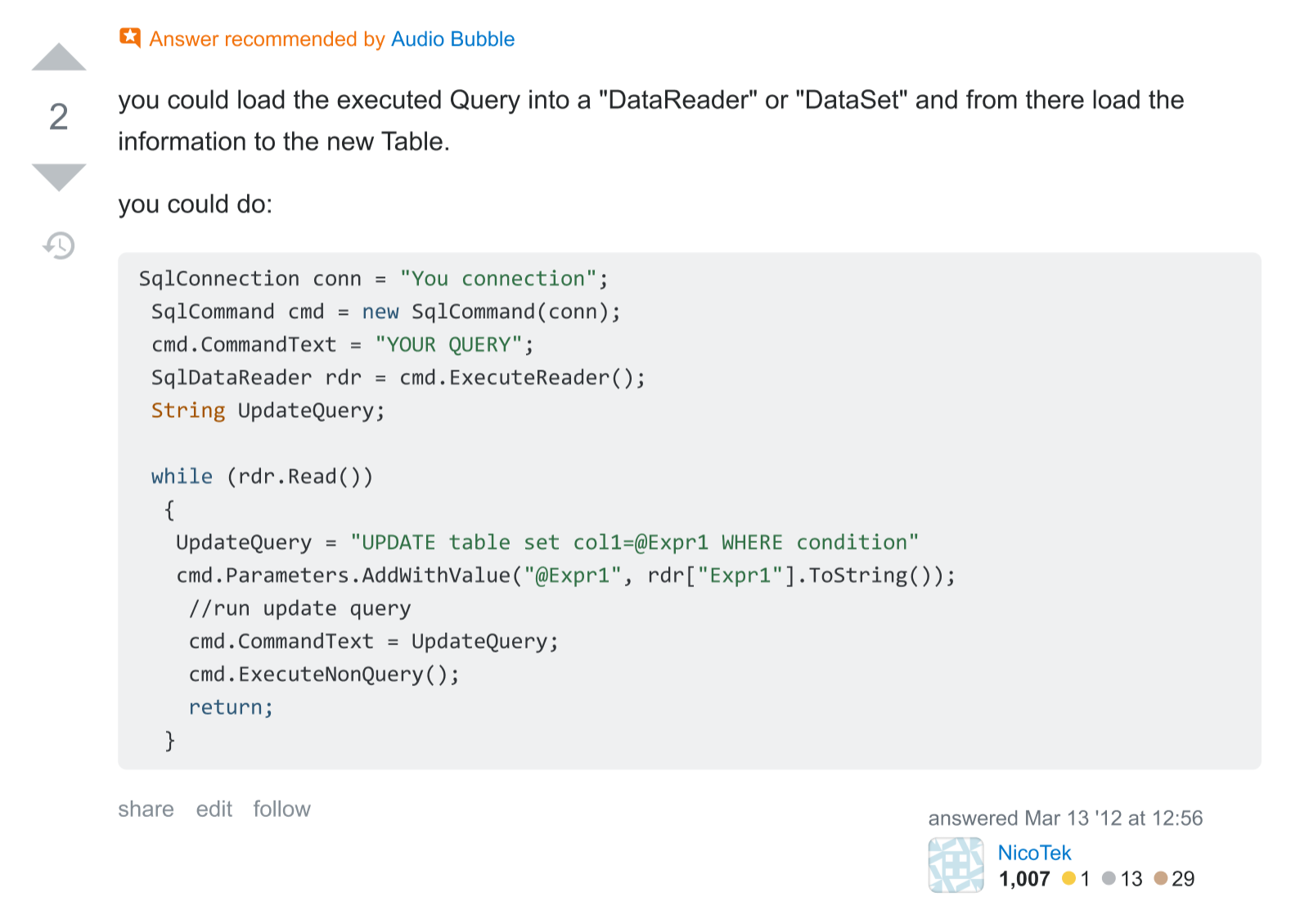
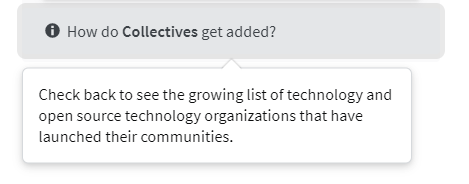
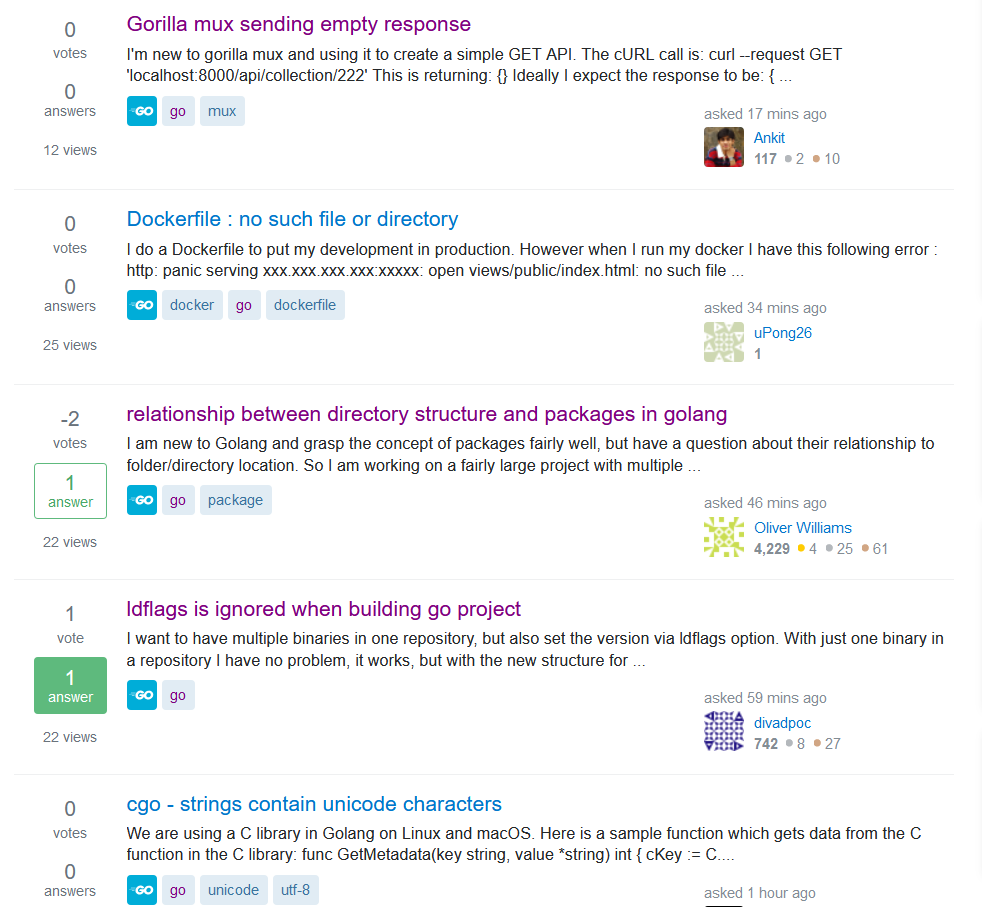
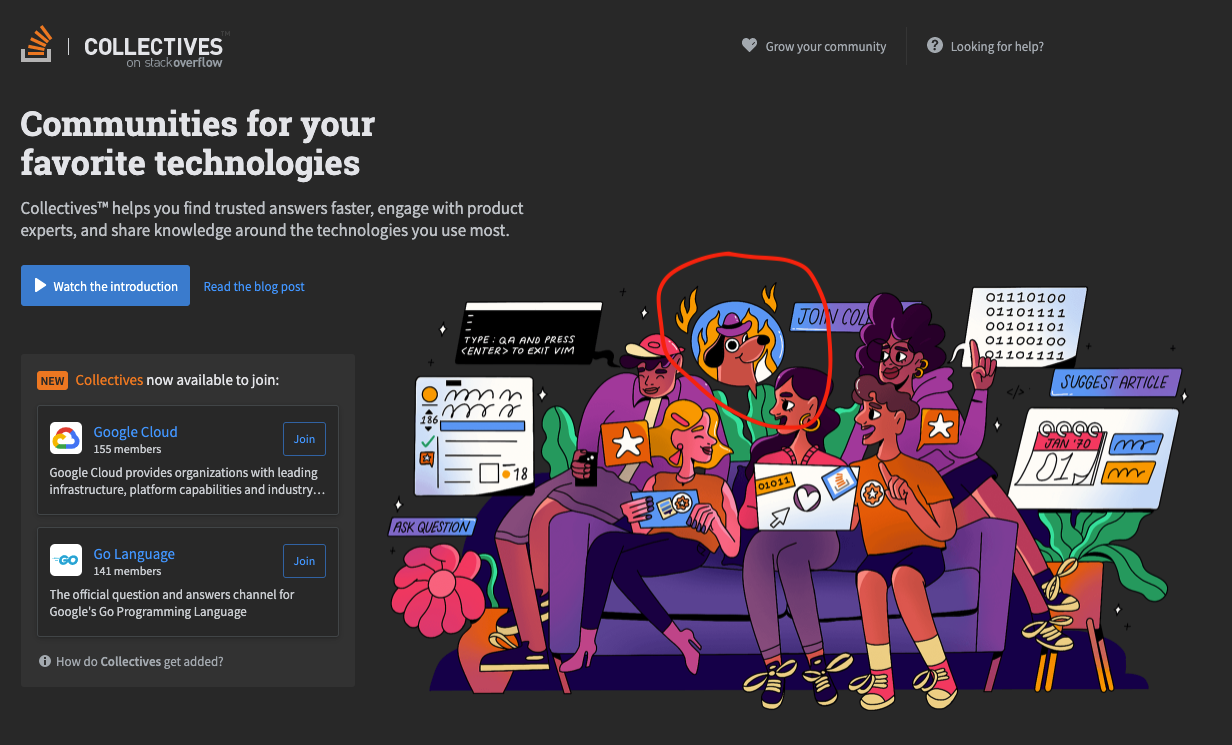
![a [go] question with two [go] tags](https://i.sstatic.net/y2qKm.png)
